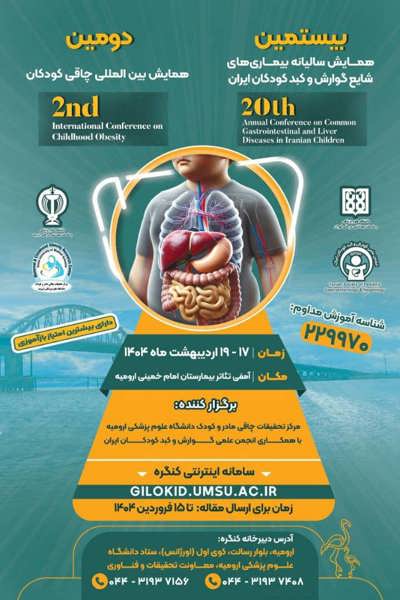0% Complete

صفحه اصلی
/
بیستمین همایش سالیانه بیماری های شایع گوارش و کبد کودکان ایران و دومین همایش بین المللی چاقی کودکان
نویسندگان :
کلمات کلیدی :
چکیده :
لیست مقالات بایگانی شده
Vali Musazadeh - Amir Hossein Faghfouri - Mahsa Mahmoudinezhad - Fatemeh Faramarzi - Farzad Shidfar
Maryam Maleki - Shiva Mohammadi - Parisa Tajdini - Sajjad Rahimi Pardanjani - Fatemeh Moghaddas
Faezeh Tejareh - Laleh Payahoo
Mojtaba Keikha - Roya Kelishadi - Fatemeh Famouri
Fatemeh Pazhouman - Amirhossein Moussavi moghanjougi - Khadijeh Mirzaie - Ameneh Elgeztin
Yousef Tavakolifar - Aydin Mahmoud Alilou - Parinaz Mahmoud Alilou - Amir Hossein Eskandari - Amir Reza Bana Nasli - Asal Khaksar Kolvanagh - Alisan Khodayarlo - Sina Manouchehrnia - Pouria Shieeh - Sana Nasirpour - Meysam Najafi - Reza Rostami - Pardis Pour Ali
Nazanin Mozaffari - Mohsen Maleki
Ulduz Riazi Khameneh - Manizheh Tayebi Khameneh
Elahe Karimipour - Haniye Karimipour

